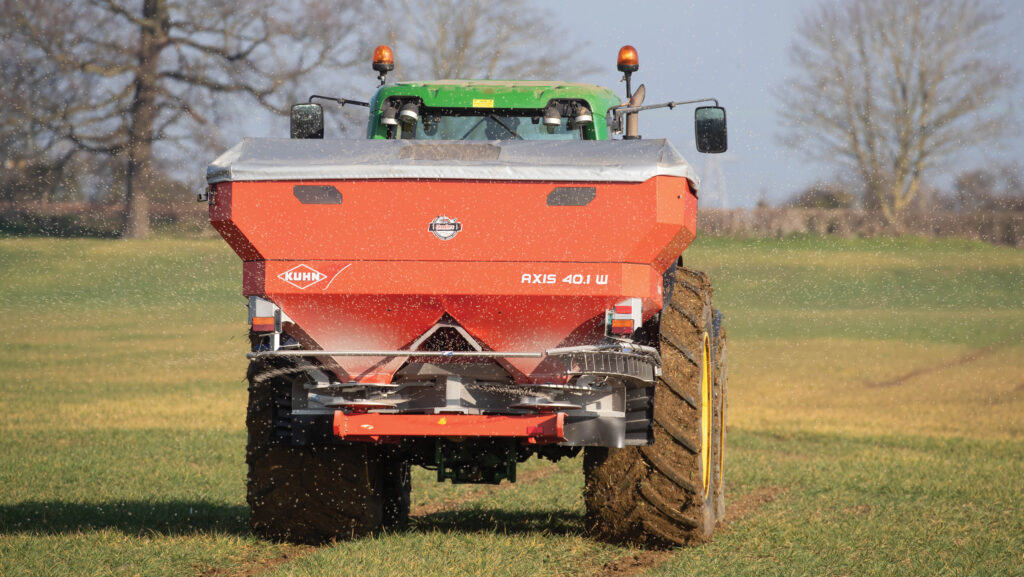Fertiliser demand muted as growers struggle with cashflows
 © Tim Scrivener
© Tim Scrivener Tight margins for arable enterprises have hit fertiliser demand in the short term, with merchants reporting a lack of forward buying as many growers delay purchases until the spring.
Fertiliser manufacturers have called for growers to plan ahead in order to avoid any potential supply constraints like those in April this year when farm businesses were left facing shortages and lengthy delivery delays.
The Agricultural Industries Confederation (AIC) issued a statement last month urging UK farmers to order fertiliser early for spring 2026, as geopolitical and logistical pressures could affect availability.
See also: UK wheat strengthens to £165/t as US-China talks lift markets
However, the NFU says this showed no empathy for growers and didn’t take into account the constraints on current cashflows.
Jamie Burrows, NFU crops board chairman, said combinable crop growers were operating in an incredibly challenging environment, following back-to-back growing seasons which had been severely affected by the weather.
He added: “Due to global supplies, grain prices are stagnant and low, often below the cost of production.
“Input costs to grow these crops, whilst down from 2022 highs, are still very expensive.”
Global outlook
Poor affordability may pressure global fertiliser demand in 2026, according to multinational banking group Rabobank.
Its Fertiliser Outlook noted that global fertiliser prices increased by roughly 15% between April and September and these higher prices had hit some resistance from buyers.
Bruno Fonseca, senior farm inputs analyst at Rabobank, said:
“While there is a case to be made for prices to be well-supported from current levels, record production in major production areas like Brazil and the US is overwhelming the market with supply.
“This will keep prices depressed in the short-to-medium term. Challenging profitability in the grain and oilseed sector portends poor fertiliser affordability and potential decline in fertiliser use in the coming year.”
Carbon tax on fertiliser
Industry forecasts indicate that the EU’s Carbon Border Adjustment Mechanism (Cbam) could affect global trade flows and disrupt supplies next year.
Rabobank says the Cbam will have a significant price impact on high-emission nitrogen fertilisers, particularly ammonia and urea.
NFU Scotland recently urged the government to delay the implementation of Cbam in the UK.
It said: “The implementation of the UK Cbam will increase the cost of fertiliser, which is one of the primary costs of production for many of the UK’s farmers and growers.
“For the cereals, arable and grassland sectors of UK and Scottish agriculture this will put further pressure on farm businesses struggling to remain viable.”
